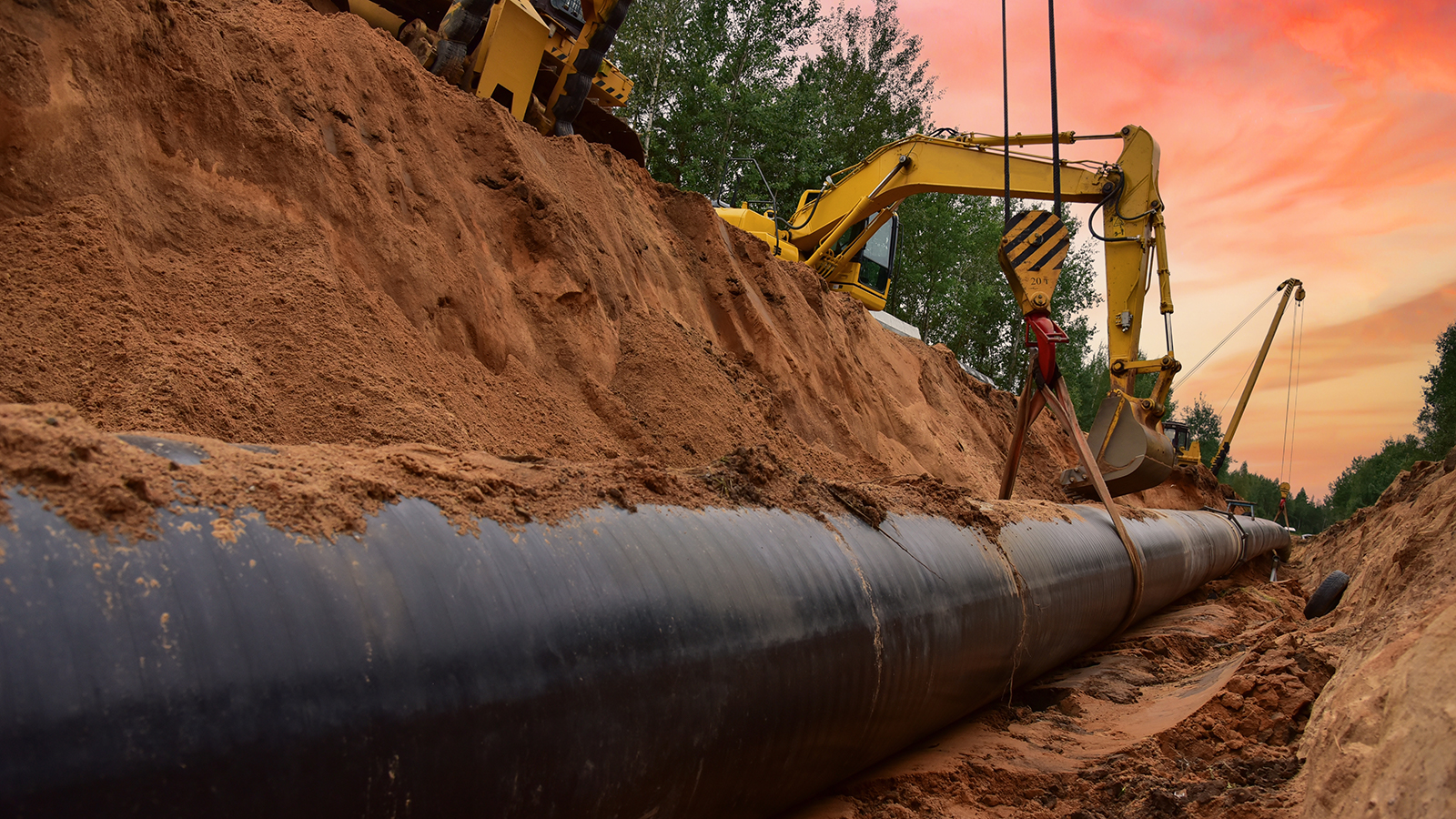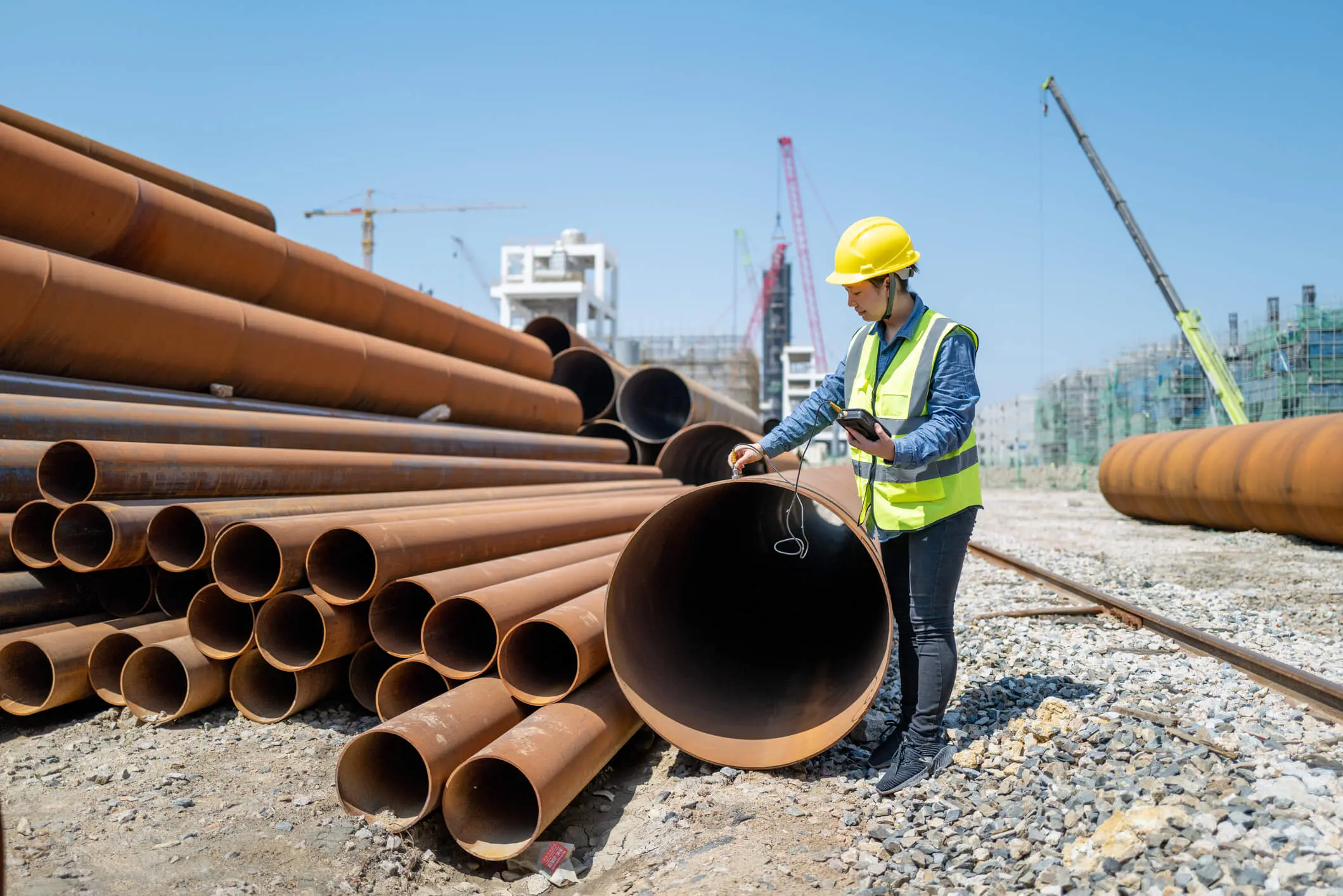Why Utility Providers Are Choosing Creek Pipe Company LLC in 2025
Wiki Article
A Comprehensive Overview to Comprehending Pipes and Their Function in Building
Pipes are vital elements in building and construction, offering vital features in waste, water, and gas monitoring. Their option and application can greatly affect a structure's effectiveness and safety. Different materials, such as PVC, copper, and PEX, offer distinctive benefits suited to specific requirements (Creek Pipe Midland). Understanding these factors is essential for any building project. As one discovers the details of pipelines, the ramifications for compliance and public wellness ended up being increasingly evidentThe Value of Piping in Building and construction
Pipelines function as crucial channels in construction, assisting in the movement of water, gas, and waste throughout structures and facilities. Their duty expands past mere transportation; they are essential for guaranteeing the performance and security of household and commercial settings. Properly set up pipelines contribute to the effective circulation of sources, allowing day-to-day activities such as heating, showering, and food preparation. Additionally, pipelines play a crucial function in waste monitoring, ensuring that sewage and wastewater are successfully eliminated from living spaces.The importance of pipes is additionally reflected in their influence on public health. Insufficient or faulty piping systems can cause contamination and hazardous conditions, making high quality materials and setup practices necessary. Additionally, pipelines must comply with numerous building regulations and guidelines, which are created to secure both occupants and the environment. As a result, the relevance of pipes in building encompasses both useful performance and important health factors to consider.Sorts Of Piping Utilized in Building Tasks
Numerous kinds of pipes play a substantial role in structure tasks, each developed to fulfill details needs and applications. Amongst the most typically made use of pipe types are PVC, which is immune and lightweight to corrosion, making it optimal for drain and vent systems. CPVC pipelines, comparable to PVC, can endure greater temperatures, usually made use of in hot water systems. Copper pipes are known for their resilience and integrity, regularly utilized in plumbing and heating applications. Galvanized steel pipelines, while less common today, were as soon as a standard for water supply lines because of their toughness. In Addition, PEX (cross-linked polyethylene) pipelines are obtaining popularity for property pipes due to their versatility and resistance to scaling and chlorine. Lastly, cast iron pipelines are favored for their sound-dampening residential properties, frequently used in waste and soil systems. Each pipeline kind offers distinctive functions, making certain efficient operation in building projects.Usual Materials for Piping and Their Characteristic
In building, the option of pipeline products is crucial for guaranteeing durability and capability. Steel pipelines offer toughness and resistance to high pressures, while plastic pipelines provide light-weight and corrosion-resistant choices. Composite pipelines combine the benefits of both materials, making them functional alternatives for various applications.Steel Pipeline Options
Steel pipes are important components in construction, providing a variety of options that provide to various applications and ecological problems. One of the most usual products consist of steel, copper, and cast iron. Steel pipelines are known for their strength and toughness, making them suitable for high-pressure applications. Copper pipes are preferred for their rust resistance and antimicrobial homes, usually used in plumbing systems. Cast iron pipelines offer superb audio insulation and are optimal for waste and drainage systems. Each steel type has distinct benefits; for instance, galvanized steel can resist rust, while stainless-steel offers exceptional corrosion resistance. Choosing the proper metal pipeline relies on aspects such as price, environmental direct exposure, and the certain demands of the building and construction job.
Plastic Pipe Advantages
Plastic pipelines have actually acquired popularity in building and construction due to their light-weight nature and versatility. These pipelines, made from materials such as PVC, CPVC, and PE, deal exceptional resistance to corrosion and chemical damages, making them appropriate for numerous applications. Their convenience of installment further boosts their allure, as they can be reduced and signed up with without unique tools. In addition, plastic pipelines are normally a lot more economical contrasted to metal options, adding to lower overall project costs. Their smooth indoor surface areas minimize rubbing and enhance circulation rates, while insulation homes assist preserve temperature control in plumbing systems - Creek Pipe Midland. With a wide variety of sizes and configurations offered, plastic pipes effectively satisfy the varied demands of contemporary building projectsComposite Pipeline Characteristics
Composite pipelines combine different materials to leverage their individual strengths, leading to enhanced performance and durability. Generally, these pipelines consist of layers that might consist of metals, ceramics, and plastics, each adding one-of-a-kind homes. The inner layer may be made of a corrosion-resistant material, while the external layer supplies toughness and impact resistance. This combination permits composite pipelines to stand up to extreme temperature levels and stress, making them appropriate for a wide variety of applications, including water system and industrial procedures. Furthermore, composite pipelines are usually lighter than typical products, facilitating much easier handling and installment. Their convenience and versatility to various settings make them a favored option in modern-day construction tasks, making sure durability and efficiency in fluid transportation systems.Applications of Water Lines in Pipes Solutions

Electrical Avenues: The Duty of Pipes in Electrical wiring
In modern-day building, electric channels play an important duty in guaranteeing find this the effective and safe transmitting of electric wiring throughout buildings. These pipelines provide a safety pathway for electrical cables, safeguarding them from physical damage and ecological variables. Different products, such as PVC, steel, and flexible conduits, are made use of relying on the certain requirements of the installation.Furthermore, avenues aid in organizing electrical wiring systems, lowering the danger of electric dangers like brief circuits or fires. They likewise promote simpler maintenance and upgrades, as cables can be accessed and replaced without significant interruption to the structure.Proper installment of electric conduits is important for conformity with structure codes and safety and security policies. This structured technique not just enhances the durability of the electrical system however additionally adds to the overall safety and performance of the structure, making electrical avenues essential in modern-day construction practices.Choosing the Right Pipeline for Your Job
Just how can one guarantee the ideal pipe option for a building and construction job? The selection process starts with comprehending the specific requirements of the job, consisting of the sort of liquids being transported, pressure scores, and environmental problems. Material alternatives, such as Steel, pvc, and copper, must be reviewed based on longevity, deterioration resistance, and thermal properties.Next, one have to consider the pipe's diameter and flow capability to establish efficient procedure. Governing criteria and codes have to additionally be complied with, as they determine the appropriate materials and techniques for certain applications. Consulting with experts and making use of comprehensive sources can additionally aid in making informed decisions.Finally, reviewing the cost-effectiveness of various alternatives is essential, balancing first expenditures with long-lasting upkeep and substitute prices - Creek Pipe Texas. By diligently evaluating these variables, one can confidently pick the most suitable pipe for their building and construction job, ensuring both capability and conformity
Maintenance and Assessment of Water Lines in Building
Appropriate selection of pipes establishes the foundation for their lasting efficiency, making upkeep and assessment vital parts in construction. Regular maintenance warranties that any type of prospective concerns, such as leaks, deterioration, or blockages, are identified and addressed promptly, lessening pricey repairs and job delays. Scheduled examinations, including aesthetic evaluations and pressure tests, play an essential duty in linked here examining the stability of pipeline systems.Additionally, checking environmental factors, such as temperature level changes and soil problems, can assist anticipate damage. Using advanced modern technologies, such as CCTV for interior inspections, can boost the effectiveness of upkeep efforts. It is crucial to document assessment searchings for and upkeep tasks to establish a thorough history of the pipe systems. By prioritizing maintenance and assessment, building and construction specialists can extend the life expectancy of their piping systems, ensuring they run efficiently and accurately throughout the project's duration.Regularly Asked Inquiries
Exactly How Do Pipes Influence Power Efficiency in Structures?
Pipes substantially influence energy effectiveness in structures by managing home heating and cooling systems. Appropriate insulation and materials lower energy loss, while effective plumbing styles minimize water usage, eventually bring about lower energy consumption and operational prices.What Rules Govern Pipe Installment in Building And Construction?
Rules governing pipe setup in building and construction generally include neighborhood and nationwide building regulations, pipes codes, and security criteria. These guarantee compliance with structural stability, product requirements, and health and wellness needs, advertising security and effectiveness in building and construction methods.Can Water Lines Be Recycled After Use?
The concern of pipe recyclability is significant. Several products, such as steel and particular plastics, can be recycled properly. Nevertheless, the condition and kind of pipeline influence recycling expediency, demanding proper analysis prior to disposal.
Exactly How Do Climate Condition Effect Pipe Efficiency?
Weather condition problems substantially affect pipeline performance. Severe temperature levels can cause growth or contraction, while wetness may lead to deterioration. Furthermore, heavy precipitation can boost dirt pressure, affecting security and overall functionality of the piping system.What Are the Indicators of Pipeline Failure to Enjoy For?
Indications of pipe failing consist of leaks, uncommon noises, discoloration of water, reduced water stress, and visible deterioration. Normal examinations can assist discover these problems early, avoiding costly repairs and guaranteeing system performance in the long term. Pipelines play a critical role in waste monitoring, guaranteeing that sewage and wastewater are properly gotten rid of from living spaces.The significance of pipelines is likewise shown in their influence on public health and wellness. In construction, the selection of pipe products is vital for guaranteeing durability and performance. Steel pipes use strength and resistance to high pressures, while plastic pipes provide corrosion-resistant and light-weight alternatives. In addition, pipelines are used to eliminate wastewater, linking bathrooms, sinks, and drains to metropolitan sewage systems or septic tanks.Different kinds of pipes, such as PVC, copper, and PEX, are chosen based on aspects like resilience, expense, and specific application requirements. Exactly how can one guarantee the appropriate pipe option for a building project?Report this wiki page